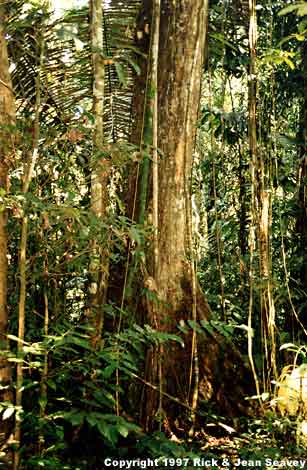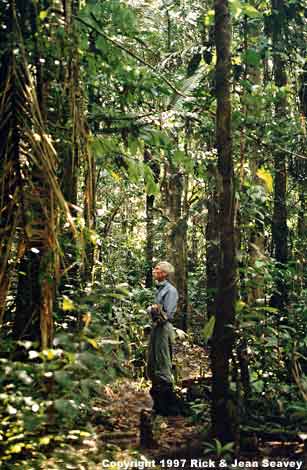| Project Amazonas Peru Photos Index | |
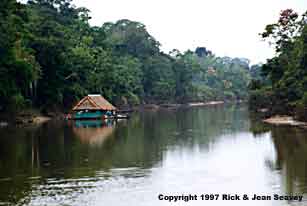 |
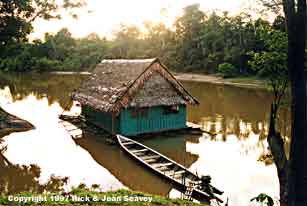 |
|
The raft, center of activity at Project Amazonas' Madre Selva biological station, in 1997. It is located on the Rio Orosa, a tributary of the Amazon River, 90 miles east of Iquitos, Peru. Iquitos is in northeastern Peru just south of the equator bordered by Ecuador and the Pacific Ocean on the west, Columbia to the north and Brazil on the east. |
|
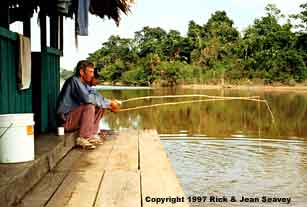 |
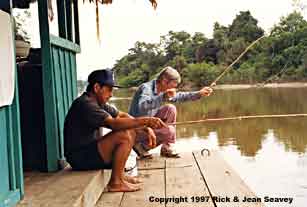 |
|
Rick & Adriano, caretaker at the station, trying their hand at catching supper with primitive tackle. Days were warm during our summer visit (much like South Florida) but evenings were pleasantly cool for sleeping, unlike South Florida at this time of year. |
|
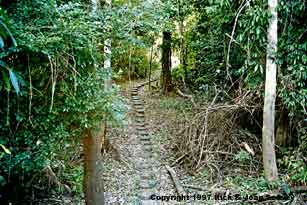 |
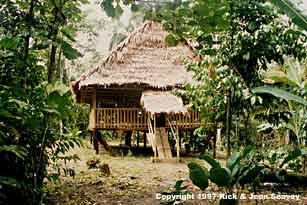 |
|
Path to our accommodations which were on land. Rooms were also available on the raft near kitchen, bathroom/shower facilities and trading post. |
Our hut which was located at the entrance to a forest trail. The platform held two tents, one for sleeping and the other for research. |
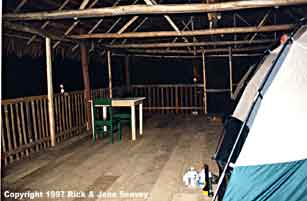 |
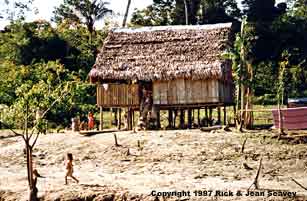 |
|
Hut interior. The structure was constructed of local materials by resident craftsmen, greatly resembling their own habitations. Note the beautiful wood flooring. |
Home of natives on the river's edge. Although this structure is closed, many are open-sided. The thatch roof is common. |
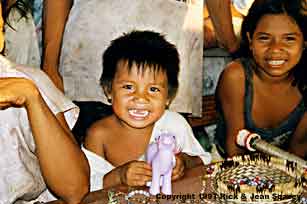 |
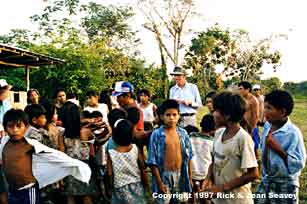 |
|
The Yagua Indian community of Commendancia borders Project Amazonas and relations are close. On this day they held a trade fair. Our friend on the left is definitely pleased with his trade for the purple unicorn (a door prize from our Spanish class final banquet). To the right, kids enjoy candy. |
|
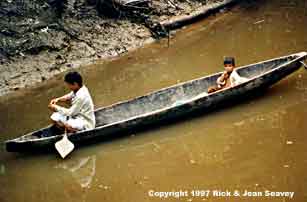 |
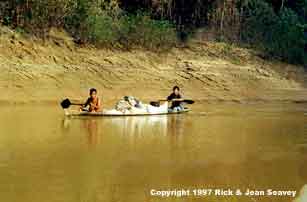 |
|
Handcrafted canoes and paddles are important to the Yagua. Here Dad tries his hand at fishing in the creek by our camp. |
This canoe is loaded with dry food supplies such as rice. Probably they had just traded at the Project Amazonas trading post. |
|
|
|
|
The tropical rain forest - what it's all about! After visiting here, our trees in the States looked like shrubs. No wonder the tropical rain forest houses great biological diversity and makes the nights cool (although practically on the equator). It is so huge it influences world climate! |
|
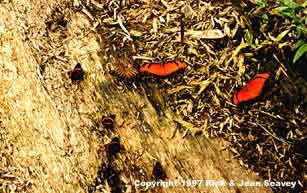 |
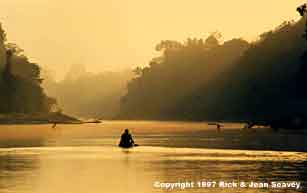 |
|
Beautiful butterflies in great variety are some of the more accessible examples of biological diversity. |
On the way home to Commendancia into the sunset - a way of life not without its rewards! |
|
Project Amazonas has moved on since our visit in 1997. Several other structures have been built and it is now a research site incorporated into the Organization for Tropical Studies. In addition to the Madre Selva and Paucarillo stations, new purchases have added 100's of hectares of rain forest which will be protected in perpetuity from logging. |
|
